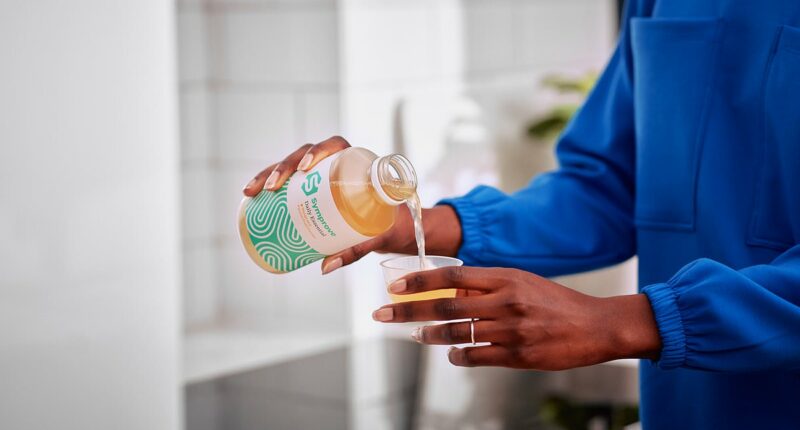Share this @internewscast.com
The patient sitting in my consulting room was exasperated. The 42-year-old mother of two – we’ll call her Nisha – had been coping with daily abdominal pain and diarrhoea for years. Each time she attempted to get help, she was met with the same response: it was ‘a bit of IBS’ and there wasn’t much that could be done.
Irritable bowel syndrome affects more than one in ten individuals in the UK. At its best, it is uncomfortable, and at its worst, it is agonizing, depriving those who suffer of sleep, work, and a good quality of life. Despite this, there are no NHS-approved prescription medications specifically created to treat it.
What’s more, many patients like Nisha receive little to no guidance on managing their symptoms. By the time they sit across from me – often as a last resort, after years of shuffling between doctors – they are desperate. This disheartens me because growing research indicates that there are straightforward, cost-effective measures that can significantly alleviate IBS symptoms.
One approach in particular stands out, with remarkable results for many patients: probiotic supplements.
I’ve long been doubtful, like many GPs, about the endless variety of supplements that claim to enhance health and cure all diseases. However, I do recommend probiotics for IBS as one of the few exceptions. These products – typically drinks or capsules – contain live bacteria meant to enhance gut health and, according to studies, can alleviate even severe symptoms of IBS.
The most well-known among them is Symprove, a £50-a-month drink which many patients claim has improved their lives, addressing issues ranging from diarrhoea to bloating and constipation. However, there are other probiotic options available in the market.

Irritable bowel syndrome affects over one in ten individuals in the UK. It is uncomfortable at best, and at worst, agonizing, depriving those who suffer of sleep, work, and a decent quality of life.

Many patients credit Symprove, a £50-a-month drink, with transforming their lives, tackling everything from diarrhoea to bloating and constipation
In recent years, I’ve spoken to a growing number of patients who, sometimes out of sheer desperation, tried probiotics and reported dramatic improvements.
One 60-year-old told me she’d battled bloating and cramps for years until she began taking a daily probiotic capsule with breakfast. ‘I don’t have any symptoms now,’ she said. ‘It only costs around £20 a month and I recommend it to all my friends.’
Probiotics aren’t a cure-all. Evidence suggests roughly half of IBS patients won’t see a meaningful benefit and they’re only one of several simple steps that can help ease symptoms. But could a pro- biotic be right for you and if so, which one should you try?
The need for better IBS treatment is clear. As many as 13million Britons live with the condition, yet doctors still don’t fully understand what causes it or how best to treat it. IBS is usually thought of as an over-sensitive gut, where eating or drinking can trigger pain, bloating and diarrhoea. It’s about twice as common in women as men and most often diagnosed between the ages of 20 and 40.
NHS advice is to eat a balanced diet, drink plenty of water and exercise regularly. Patients are urged to avoid eating too quickly, cut back on fatty, spicy or processed foods, limit themselves to three portions of fruit and three caffeinated drinks a day and steer clear of alcohol and fizzy drinks. But for many, diet tweaks are not enough. Some end up prescribed low-dose antidepressants such as amitriptyline or citalopram, which work on gut-nerve sensitivity, while others are referred for talking therapies to help them cope. No wonder probiotic supplements have become a popular option.
Several studies argue that, for some, IBS could be triggered by an unhealthy gut microbiome – the thriving community of trillions of bacteria and other ‘friendly’ microbes in the stomach. The theory is that a probiotic that boosts gut health can improve symptoms.
The NHS recommends patients try a probiotic for a month to see if symptoms improve. The ones I recommend include Symprove (£50 a month), Bio-Kult (£26), Boots Good Gut Bacteria (£20) and Live Cultures+ (£15). Each contains a different blend of bacteria, so there’s often a bit of trial and error before finding one that helps.
For some, probiotics can make symptoms worse – and there are other approaches. One of the most effective is the low-FODMAP diet, which cuts out certain fruits, vegetables, wholegrains, pulses and nuts.
Eating a balanced diet rich in plant-based ingredients is important for a healthy gut microbiome.
But for many, some of these foods can also trigger symptoms.
The low-FODMAP diet is not meant to be followed for life. Many can gradually reintroduce higher-fibre foods once they have identified their main triggers. Studies show three in four patients respond well to the diet – though many find it hard to stick to.
Exercise is another step that often gets overlooked. Research shows regular activity can ease IBS symptoms and core- strengthening workouts such as yoga and pilates seem particularly effective for reducing bloating.
There are over-the-counter remedies worth trying. Tablets such as Colofac and Buscopan can calm painful gut spasms. Peppermint oil capsules like Colpermin and Mintac may help with bloating and medicines like Imodium and Enterosgel can help with diarrhoea.
All of these options are worth discussing with a GP. Many find a combination of approaches gives the best results. Take Nisha. She now takes a daily probiotic, uses Enterosgel during flare-ups and does regular exercise. Her symptoms haven’t vanished entirely but are far more manageable than when she first came to see me.
The key message is this: don’t let anyone dismiss your symptoms as ‘just a bit of IBS’.
It can be a debilitating condition and with the right steps, no one should have to suffer needlessly.













